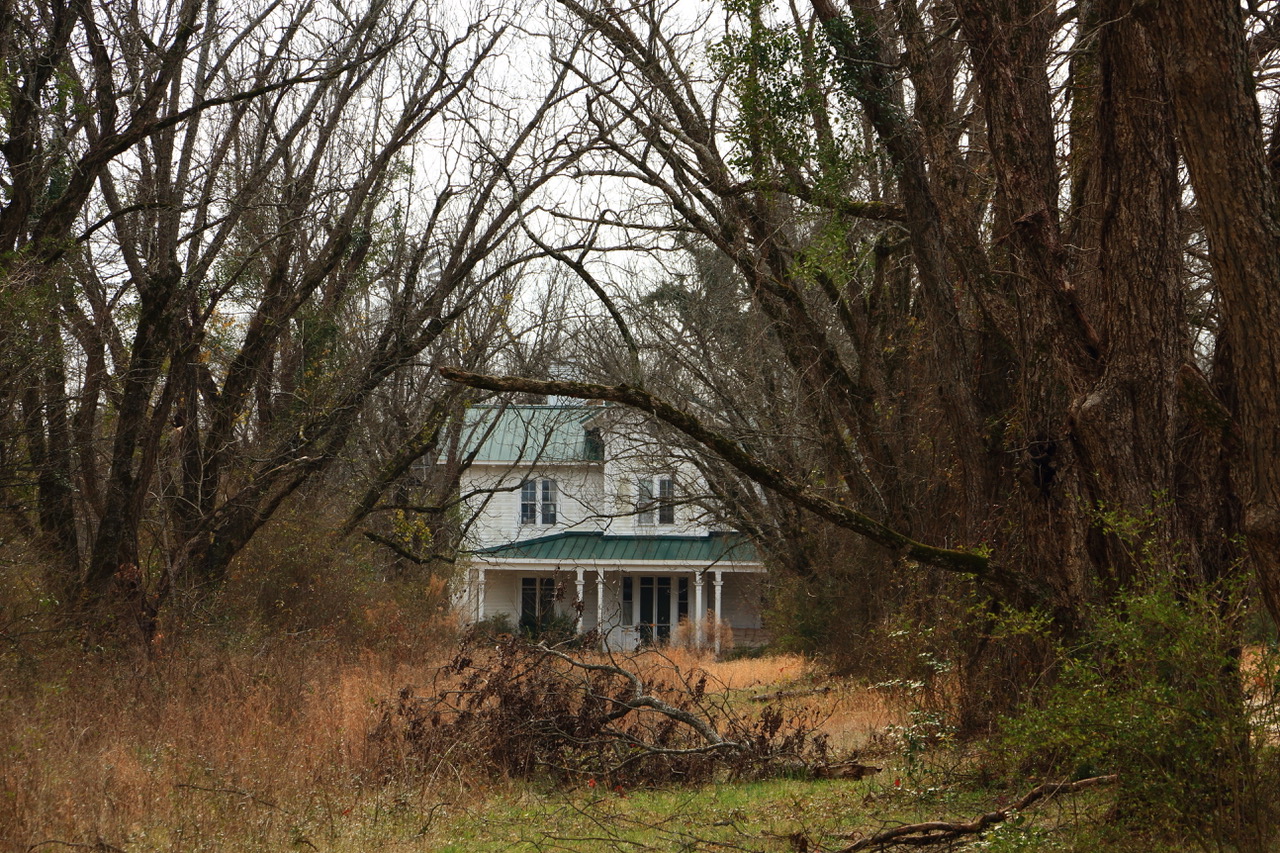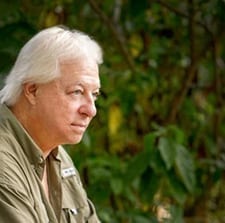The Forsaken Land
February 10, 2023By Tom Poland
Kudzu covered its outbuildings. The farm was lonesome so I turned around and stopped to visit it. Right off I saw a dusty mule collar hanging on a stable wall. The farmer and his mule were long gone, but the collar spoke, “We were here once, working corn and cotton.”
There was something comforting and disturbing about the old farm. People lived off the land there but now their farm’s forever fallow. Mixed emotions took over me, for despite all we do, we too shall be gone one day. All that we prize? It’s probably headed for abandonment.

An abandoned farm waits along a back road.
When I walk the grounds of an old homeplace I walk through an archeological dig. I’ve seen old clothes, old hats, old sinks, and old stoves in abandoned homes. Diplomas. An abandoned library. A clothesline that sees no clothes. A kitchen whose floor has collapsed. And a woman’s shoes awash in green mildew. Just how did the Forsaken Land claim these places? Death claimed their owners, sure, but what forces swept their homes into abandonment.
You see them too. You drive along a back road where you pass ruins of the American South. Places where you can tell a hand tended a yard. Places where trees speak. “Yes, once upon a time a home nestled among us. Look closely and you’ll find remnants.”
I went into the country one Sunday afternoon to look for old homeplaces. I sought antique bottles the dead had tossed out as trash. I found a few bottles but what I remember most were the old homes reclaimed by kudzu, pines, vines, weeds, and fields.
You can spot such places in spring by the profusions of golden jonquils. You can spot them by the chimneys that stand as monuments to lives once warmed. You can spot them by the piles of rocks where a foundation rested. Like cairns, they stand as memorials to old homeplaces.
A mile from my house stands a Publix. Observant shoppers will spot an old homeplace on a hill just beyond the parking lot. The spacing of trees tells you a home once stood among them. More telling are a large prickly pear cactus and sherds of blue-white china hidden in weeds.
It’s easy to tell when the last parent dies and no one steps forward. Shrubbery turns feral. Pine seedlings sprout from gutters. Just a summer’s worth of uncut grass reveals how quickly nature reclaims what is hers. Let a few years go by without maintenance on trim, shutters, windows, and doors, and trouble finds a home. But no one lets a home go without care, do they?
Well, yes, they do. From estate squabbles to outright apathy and other reasons, the living turn their back on homes where joy and laughter once lived. No doubt dogs and cats found happiness in those rooms, too, for what is a home without pets. Now? All gone. Nothing left.
Not long ago I heard from a childhood friend who moved about as far away as you can. No one in his family remained. Alone and eager to recapture his childhood, eager to show his wife where he had grown up, he drove cross-country to see his childhood home a final time. What he saw shocked him. The dilapidated home was nothing like what he remembered. He didn’t bother to stop.
That’s how some old homeplaces come to be. It starts when the children move away. Parents die and the new owners don’t take care of another person’s memory. One day the place becomes uninhabitable, and no one wants to buy it. The years roll on and the shrubbery, roses, jonquils, and azaleas keep growing, hoping that someday someone with shears might return but they never do, and then one day a storm or bulldozer puts the place out of its misery. Still, subtle clues of what once was remain, but passersby are too busy to notice. As far as these busy people go, the place never existed, but I know it did and I say aloud that old cliché. “Nature waits for no man.”
Georgia native Tom Poland writes a weekly column about the South, its people, traditions, lifestyle, and culture and speaks frequently to groups in the South. Governor Henry McMaster conferred the Order of the Palmetto upon Tom, South Carolina’s highest civilian honor, stating, “His work is exceptional to the state.” Poland’s work appears in books, magazines, journals, and newspapers throughout the South.
Visit Tom’s website at www.tompoland.net
Email him at [email protected]















